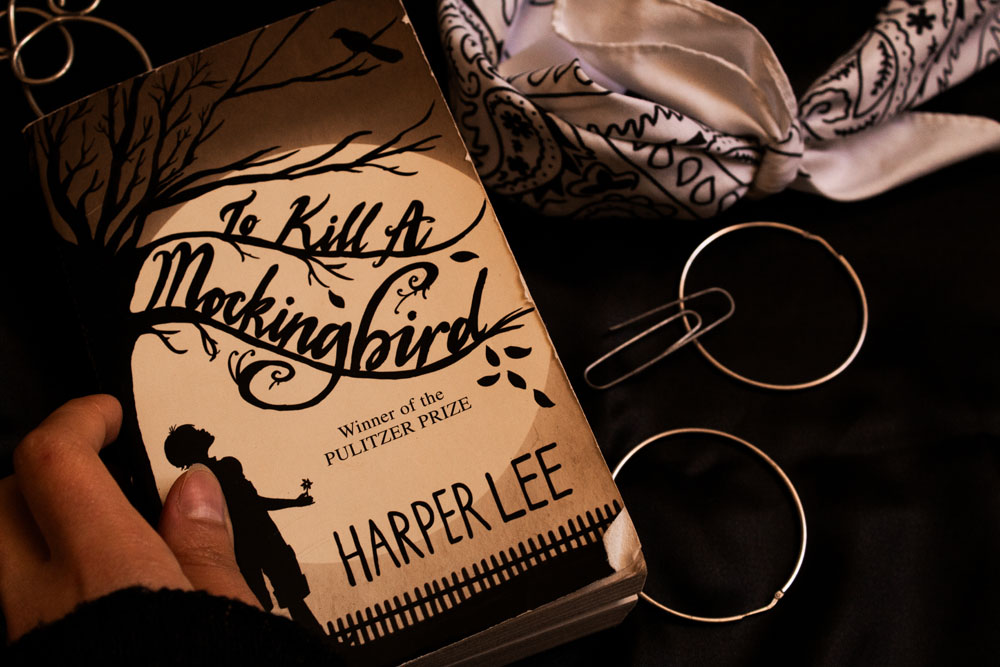To Kill a Mockingbird is one of the 20th century’s most important novels. Published in 1960, and winner of the Pulitzer Prize, it stated firmly that black lives matter very much – eight years before the death of Martin Luther King and 60 years before the death of George Floyd. Yes, the issues are still very much with us and it’s essential that we go on talking about them, especially in schools.
That’s why I was upset to see that this book which has been repeatedly banned over the years, was recently removed from the 9th grade required reading list in the Washington State district of Mulkiteo, although teachers remain free to use TKAMB if they wish. This arose because three teachers from Kamiak High School object. One of them, Doug Baer, opined that “kids should not have to endure embarrassing and offensive language” during class discussions.
Well, Mr Baer, I respect your point of view and would defend your right to express it, but I think you’re completely and utterly wrong. If we don’t talk about this language and discuss what it means, how language changes and acquires connotations then how are we ever going to change anything? We also need to use literature – from a wealth of pens, attitudes and eras – to address issues of equality, freedom and inclusiveness. If we reject To Kill A Mockingbird then are we also going to drop Othello (racism), Oliver Twist (anti-Semitism) Mansfield Park (slavery) and A Passage to India (colonialism)? Where does it stop?
The problem in TKAMB is mainly that some characters – not the ones Harper Lee approves of – use a very emotive pejorative term for black people: the one which begins with n. If I were talking to you or to a class, as opposed to writing this piece, I’d say it aloud with mimed quotation marks. As it is, I won’t write it out here because I expect my editor would asterisk it. It is now probably the most taboo word in English – far more so than anything beginning with f or c. Actually Mark Twain uses it a lot too in Huckleberry Finn and The Adventures of Tom Sawyer – because that’s how black skinned people were referred to at that date. Of course, nobody in any of these books ever points out that it’s a derogatory term – another objection those Kamiak High School teachers make – because when these books were written, or set, it wasn’t.
Atticus Finch, so beautifully portrayed by Gregory Peck in the 1962 film of To Kill a Mockingbird that he won an Oscar for best actor, is a wonderfully decent lawyer. He works very hard, but ultimately unsuccessfully, to get an acquittal for Tom Robinson, the innocent black man wrongfully accused of rape. No no, say some of the objectors. They don’t like the “white saviour” concept. Well, hang on, if the prejudice and injustice is coming from white community then surely it needs a white man – who has listened, unlike most of his compatriots – to use his skills to try and dent it? Finch, incidentally, is based on Lee’s lawyer father and she liked Peck’s portrayal so much that she gave the actor her father’s watch.
I have intimate acquaintance with To Kill a Mockingbird. Before Michael Gove as Education Secretary, decreed that English Literature should mean just that and not include American Literature so it had to be removed from GCSE specifications, I taught it many times to many classes. And yes we always discussed the language and the systemic racism – the Missionary Society meeting Scout, the narrator, attends is worth studying in detail for the everyday racism expressed by people like Mrs Merriweather, for example. My classes were diverse and not a single student (or parent) ever expressed misgivings.
Then I wrote a study guide for Philip Allan Updates (2000) and a big photocopiable folder of teacher resources. When Philip Allen Updates merged with Hodder Education, we did two further revised editions of the study guide (2005 and 2010). Oh yes, I have thought very long and hard about this novel and the issues it raises.
I loathe the whole idea of “banning” or marginalising works of literature because of Woke objections to what some of their characters say or believe. Actor, Juliet Stephenson recently said that she thought The Taming of the Shrew and some other Shakespeare plays should be dropped because of the unacceptable attitudes in them. Well, Ms Stephenson, how are we ever going to confront misogyny and see it off it we don’t talk about it?
This is nothing, in my view, that can’t be discussed in secondary school classrooms. In the hands of good teachers these are safe spaces. And we owe it to our students to allow these difficult issues to bubble out of the literature we share so that we can see them clearly for what they are.
The good news regarding To Kill A Mockingbird is that Christopher Sergel’s play version has been widely staged and has enjoyed several good productions, which have often toured, in recent years. And a new adaptation by Aaron Sorkin with Rafe Spall as Atticus opens at Gielgud Theatre in London this month. Get your students there if you possibly can. If I were still teaching, I’d regard it as a moral duty to organise a trip.
@SusanElkinJourn



